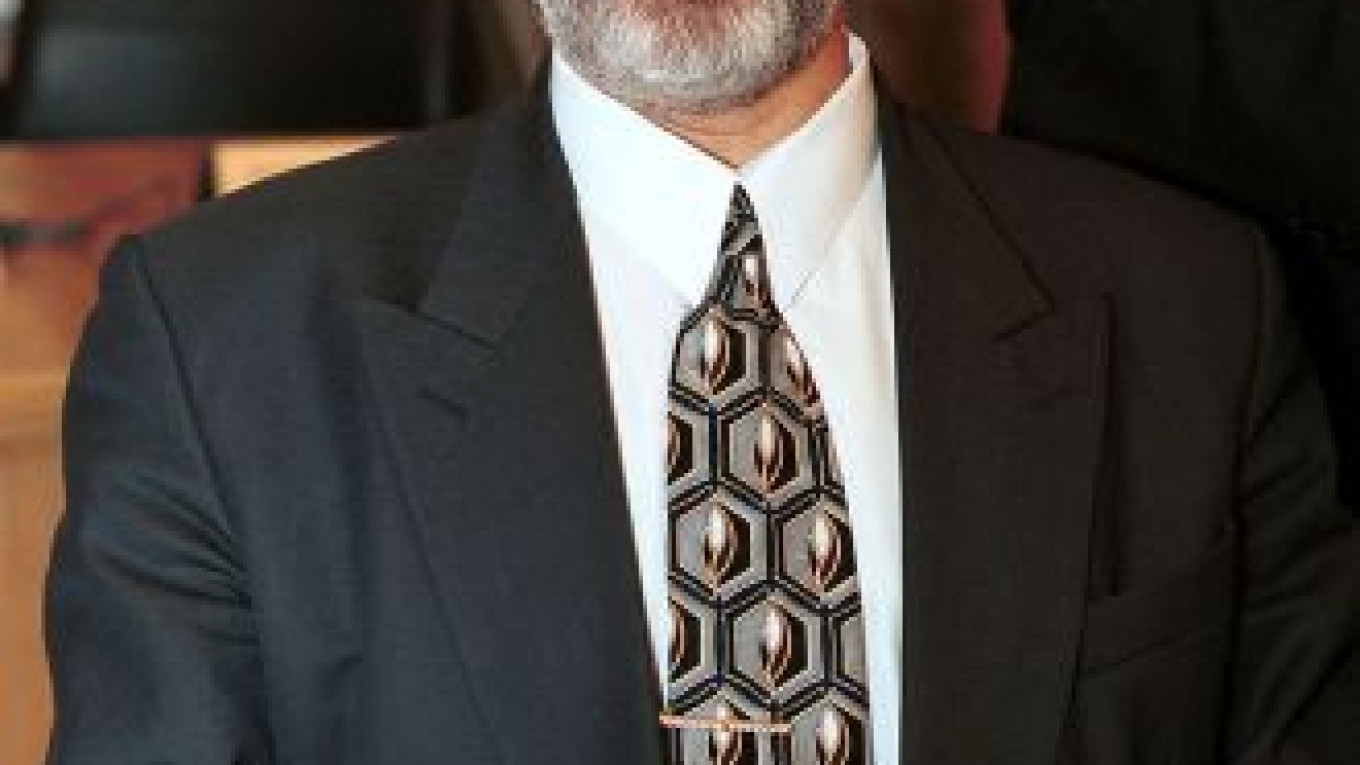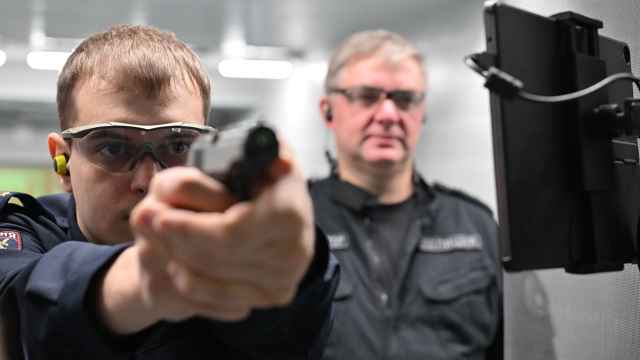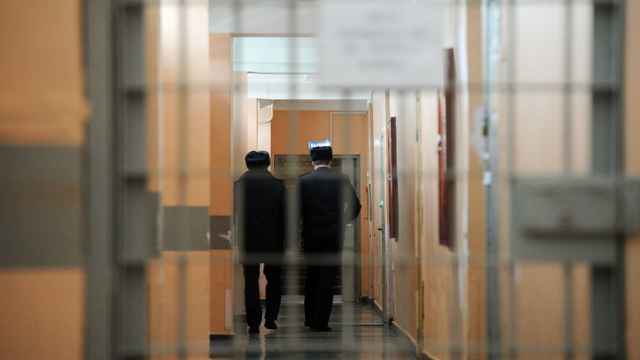Yevgeny Savostyanov's photograph of himself posing with Tom Cruise reminds the former senior Federal Security Service officer how he consulted on the latest installment of "Mission Impossible," which was filmed partially in Moscow and will hit the screens in December.
Savostyanov, however, has greater ambitions for U.S.-Russian ties beyond just helping Hollywood. He and a group of other enthusiasts formally established an organization last month that seeks to eradicate what he describes as rampant anti-Americanism, and advise the government on how to improve bilateral relations.
"We are slaves of the 45-year-long war that America waged against Communism," Savostyanov, now a senior media company executive, said in an interview. "We broke its neck together. We now need to move forward."
Savostyanov, who chose to introduce himself as president of little-known construction firm Metro-Navtika, is deputy chief executive of a new group tentatively called the Center for Assisting Rapprochement Between Russia and the United States. Alexander Shokhin has agreed to be chief of the organization, which is now awaiting registration with the Justice Ministry. Shokhin is also president of the big business club, the Russian Union of Industrialists and Entrepreneurs, or RSPP.
In addition to Major General Savostyanov &mdash who took charge of the Federal Security Service's Moscow city branch immediately after the failed August 1991 coup against former Soviet President Mikhail Gorbachev — co-founders of the rapprochement center include Igor Yurgens, chief of the Institute for Contemporary Development, a liberal think tank chaired by President Dmitry Medvedev; and former Central Bank Chairman Sergei Dubinin.
The center, which doesn't have a web site yet, plans to bring together Russian experts on Moscow-Washington relations to generate media commentary, conduct round-table discussions and provide policy proposals to the Foreign Ministry, Savostyanov said.
A January poll by Levada Center recorded that 28 percent of Russians thought badly of the United States — a level that has largely remained unchanged since 2002, though it has worsened at times, for example in the wake of U.S. criticism of Russia's brief war with Georgia in August 2008. The poll of 1,600 people across the country had a margin of error of 3.4 percentage points.
Levada director Lev Gudkov said the "high" level of dislike toward the United States stems from mainstream television coverage of U.S. policies — something the new group could try to counterbalance.
"It's worth a try," he said. "This sort of activity will not be without use."
Gudkov, however, noted that the effort would go against the government, which tacitly backs the current television commentary, in a country where the main channels are under state control.
Some other pundits in the field of U.S.-Russian ties scoffed at the project.
Most of the center's founders regard Russia as a junior partner in relations with the United States, which gives it little chance of success, said Gennady Yevstafyev, a retired lieutenant general and a senior vice president of think tank PIR Center.
"It's not their time," Yevstafyev said, adding that such thinking was widespread earlier but the countries should now talk to each other as equals.
A Foreign Ministry spokesman said he was unable to comment on the issue when contacted Friday.
"We welcome the efforts of those wishing to promote mutual understanding and improved relations between the United States and Russia," a U.S. Embassy spokesperson said.
The idea to set up the group emerged after the brief war with Georgia prompted a chill in U.S. ties, Savostyanov said. The White House has since started a "reset" in relations with the Kremlin in an effort to improve them.
Russia and the United States have pledged joint efforts in fighting terrorism, drug trafficking, cybercrime and nuclear weapons proliferation but differ on Iran's nuclear program and independence bids of such regions as Kosovo and Abkhazia. The nations are working with mixed results to come to terms on a U.S.-backed missile shield in Europe.
Savostyanov explained his motivation, saying he wants his son to live in a more U.S.-friendly country. That would be a return to pre-World War II sentiments, he said.
Savostyanov said the new group would likely look into cooperating with the Russian-American Business Council, an organization — also headed by Shokhin — whose mission is to promote business ties between the countries.
A Message from The Moscow Times:
Dear readers,
We are facing unprecedented challenges. Russia's Prosecutor General's Office has designated The Moscow Times as an "undesirable" organization, criminalizing our work and putting our staff at risk of prosecution. This follows our earlier unjust labeling as a "foreign agent."
These actions are direct attempts to silence independent journalism in Russia. The authorities claim our work "discredits the decisions of the Russian leadership." We see things differently: we strive to provide accurate, unbiased reporting on Russia.
We, the journalists of The Moscow Times, refuse to be silenced. But to continue our work, we need your help.
Your support, no matter how small, makes a world of difference. If you can, please support us monthly starting from just $2. It's quick to set up, and every contribution makes a significant impact.
By supporting The Moscow Times, you're defending open, independent journalism in the face of repression. Thank you for standing with us.
Remind me later.






